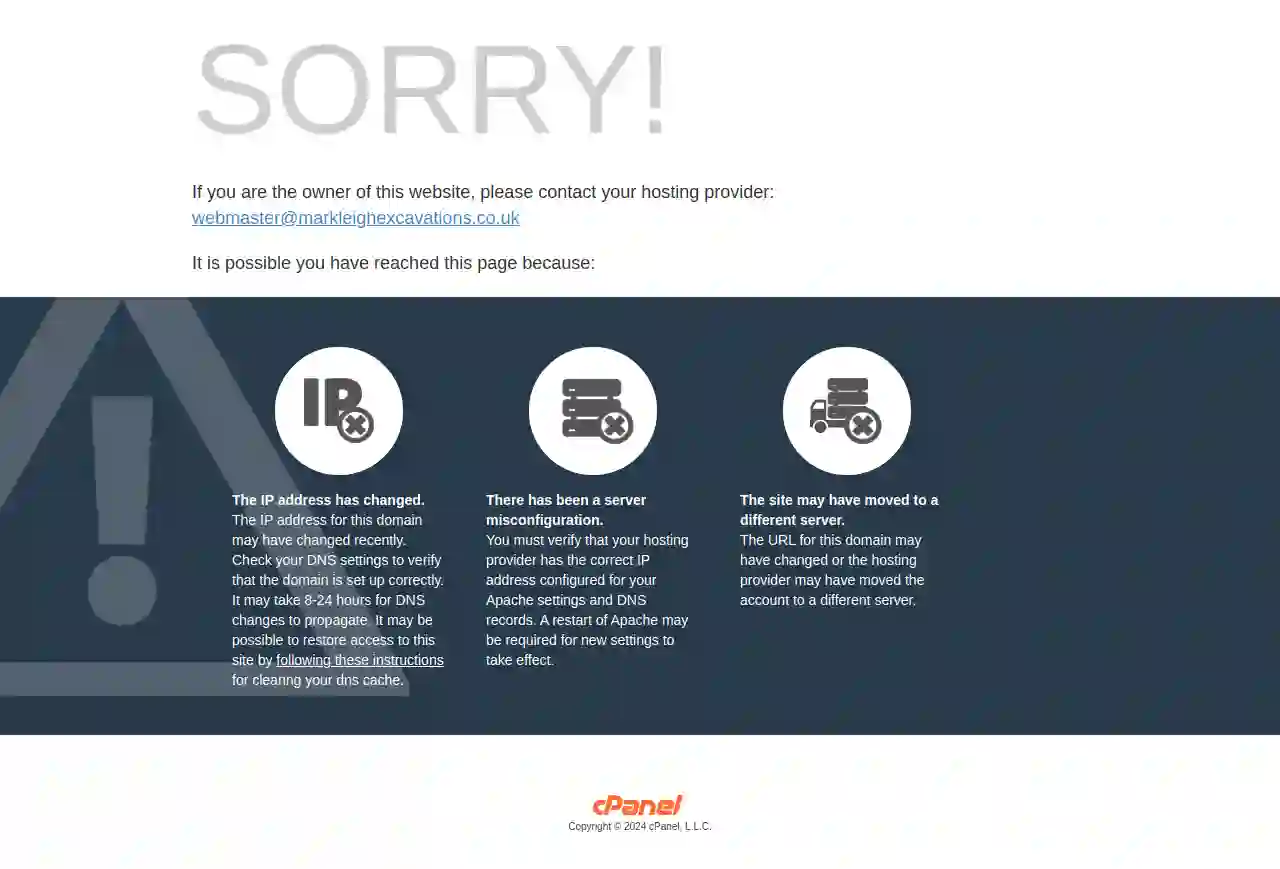Demolition Contractors Lowton
Top 10 Demolition Experts in Lowton
Receive up to 3 Demolition Services quotes for your project today! Compare profiles, reviews, accreditations, portfolio, etc... and choose the best offer.

Mark Leigh Excavations Ltd
Unit 1, The Maltings, Colchester Road, Colchester, CO7 6DP, GBMarkleigh Excavations: Your Trusted Partner for Excavation Services Markleigh Excavations is a family-run business with over 20 years of experience in the excavation industry. We are committed to providing our clients with high-quality, reliable, and efficient excavation services. Our team of skilled and experienced operators is dedicated to delivering projects on time and within budget. We pride ourselves on our commitment to safety, customer satisfaction, and environmental responsibility. We offer a wide range of excavation services to meet the needs of our clients, including: Site clearance Foundation excavation Drainage installation Road construction Demolition And more! We are equipped with a fleet of modern and well-maintained machinery to handle any project, big or small. We also have a team of experienced engineers and project managers who can provide expert advice and guidance throughout the entire process. At Markleigh Excavations, we believe in building strong relationships with our clients. We are committed to providing excellent customer service and ensuring that our clients are completely satisfied with our work. Contact us today to discuss your excavation needs.
- Services
- Why Us?
Get Quote- La
Lawrence grab & Tipper Hire excavation Groundwork’s Aggregates
4.315 reviewsLeigh, GB- Services
- Why Us?
Get Quote - WL
WL Piling
4.714 reviewsLeigh, GB- Services
- Why Us?
Get Quote - AL
ALLAN DAVIES EARTHWORKS LTD
56 reviewsLeigh, GB- Services
- Why Us?
Get Quote - Ha
Hanchant Construction Ltd
Leigh, GB- Services
- Why Us?
Get Quote
Over 13,059+ Excavation Businesses in our network
Our excavation pros operate in Lowton & beyond!
ExcavationHQ has curated and vetted the Best Excavation Contractors arround Lowton. Find the most reliable business today.
Frequently Asked Questions About Demolition Contractors
- 'Can I see proof of your licensing and insurance?' Verify their credentials and coverage.
- 'What experience do you have with projects like mine?' Ensure they have relevant expertise.
- 'Can you provide references from past clients?' Check their reputation and customer satisfaction.
- 'What are your safety protocols?' Prioritize contractors who emphasize safety.
- 'How will you handle hazardous materials?' Ensure they have proper procedures for asbestos or lead abatement.
- 'What is your timeline for completing the project?' Understand the project duration.
- 'How will you manage noise, dust, and debris?' Discuss mitigation measures for minimizing disruption.
- 'What are your payment terms?' Clarify payment schedules and any required deposits.
- Implosion: Using explosives to collapse a structure inwards rapidly. Suitable for large buildings in open areas.
- Wrecking Ball: Swinging a large steel ball to impact and break down the structure. Effective for bringing down walls and other solid elements.
- High-Reach Demolition: Utilizing specialized excavators with extended arms and demolition attachments for dismantling tall structures piece by piece.
- Selective Demolition: Removing specific parts of a building while preserving other sections. Often used in renovation projects.
- Deconstruction: Carefully dismantling a building to salvage reusable materials, reducing waste and environmental impact.
What questions should I ask a demolition contractor before hiring them?
What are the different types of demolition?
Can I do demolition myself?
What is a demolition bond?
What questions should I ask a demolition contractor before hiring them?
- 'Can I see proof of your licensing and insurance?' Verify their credentials and coverage.
- 'What experience do you have with projects like mine?' Ensure they have relevant expertise.
- 'Can you provide references from past clients?' Check their reputation and customer satisfaction.
- 'What are your safety protocols?' Prioritize contractors who emphasize safety.
- 'How will you handle hazardous materials?' Ensure they have proper procedures for asbestos or lead abatement.
- 'What is your timeline for completing the project?' Understand the project duration.
- 'How will you manage noise, dust, and debris?' Discuss mitigation measures for minimizing disruption.
- 'What are your payment terms?' Clarify payment schedules and any required deposits.
What are the different types of demolition?
- Implosion: Using explosives to collapse a structure inwards rapidly. Suitable for large buildings in open areas.
- Wrecking Ball: Swinging a large steel ball to impact and break down the structure. Effective for bringing down walls and other solid elements.
- High-Reach Demolition: Utilizing specialized excavators with extended arms and demolition attachments for dismantling tall structures piece by piece.
- Selective Demolition: Removing specific parts of a building while preserving other sections. Often used in renovation projects.
- Deconstruction: Carefully dismantling a building to salvage reusable materials, reducing waste and environmental impact.